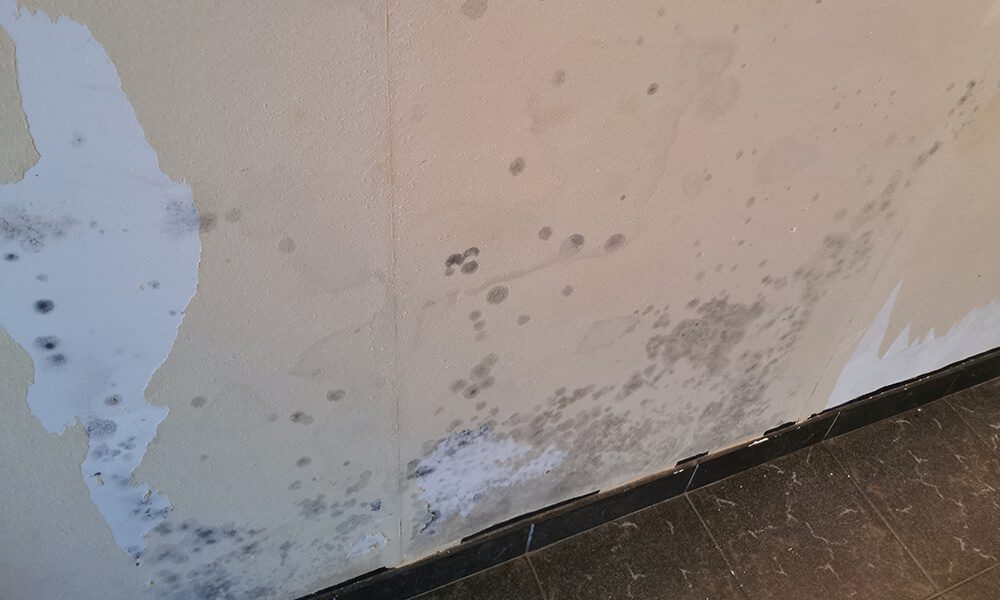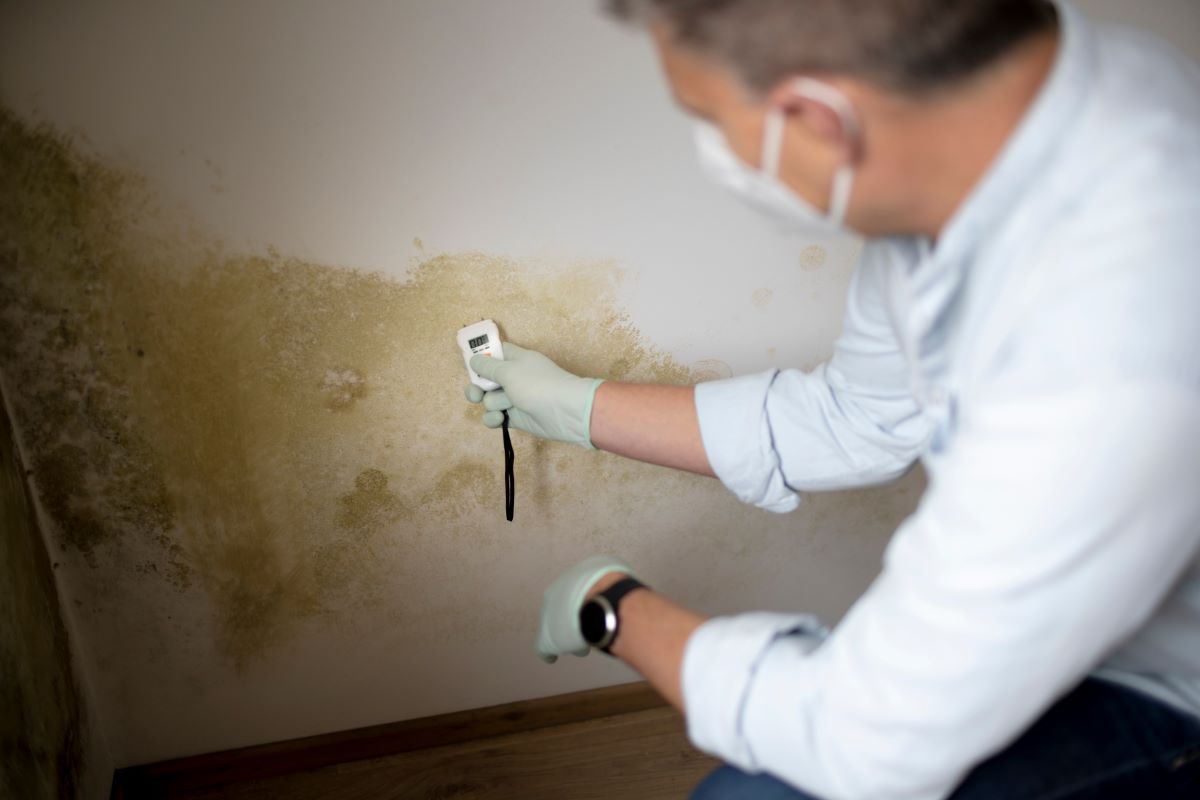Do you suffer from moisture in the bedroom? You're not alone: in Flanders, many bedrooms suffer from moisture problems. Think of problems such as a musty smell, condensation forming on the windows or moisture spots on the walls.
Recognizing moisture in the bedroom
A sleeping area is an important room in your home. It is the room in which you relax, get your sleep, watch TV or perhaps work or study. In other words, the bedroom is a place where you should like to be and where you would rather not have moisture problems .
An ideal humidity level for a bedroom is between 40% and 60%. Is the value greater than that? Then chances are that sooner or later you will experience moisture spots and problems. You can usually recognize an overly humid bedroom by the following symptoms:
- Colored spots on the wall
- Mold spots
- Loose wallpaper, painting or plastering
- A musty and bad smell
- Condensation on the windows and walls
When you notice these issues in your bedroom, it's a good idea to call in a moisture specialist.
Consequences of a damp bedroom
If you notice the previous characteristics in your bedroom but do not intervene, it can lead to all kinds of negative effects. We list the main ones:
- Consequences for your health. Consider regular respiratory infections, breathing problems or headaches.
- Effects on indoor climate. A damp room feels fresher is harder to heat. You will use more energy to reach a comfortable temperature.
- Consequences for your home. Moisture in the bedroom not only creates an unpleasant odor, it can also affect your furniture and home.

Causes of an excessively damp bedroom and their solutions
There are several causes of bedroom moisture, each with its own moisture solution. It is recommended to hire a moisture expert to determine the exact cause. Once the exact cause is known, an appropriate solution can also be provided. The most common causes are:
1. Condensation moisture
Condensation moisture is a common cause of a damp bedroom because condensation is often caused by human actions. Consider, for example, the breathing or perspiration of occupants. Sleeping or cleaning can also increase humidity. When this moisture has nowhere to go, it will settle against cold surfaces. In addition, cold bridges can also be the culprit.
The ideal solution to condensation moisture is to ventilate your bedroom as much as possible so that the excess moisture can leave. You can, for example, take action yourself in this regard. Here are some tips:
- Install a humidity meter so you can always keep an eye on the humidity. An ideal humidity level is around 50%.
- Make sure you don't dry laundry in your bedroom.
- Try to keep the bedroom temperature above 15°C.
- Ventilate your bedroom by opening your windows for 10 to 30 minutes daily. What also helps is leaving your bedroom door ajar at night.
As you can see, there are many things you can do yourself. However, you can also enlist the help of a mechanical ventilation system. For example, in a type D ventilation system, both the supply and exhaust of air are completely mechanically controlled by means of valves. This system thus provides a precise balance in air circulation within the home.
Note: In some cases, another moisture problem leads to higher humidity and consequently condensation moisture. Consider, for example, seepage or rising damp.
2. Rising damp
Is your bedroom on the ground floor? Then rising damp can also lead to moisture in the bedroom. This occurs when there is a problem with or lack of the water barrier, causing groundwater moisture to penetrate the walls of the bedroom.
Rising damp is best handled professionally by having your walls injected. Then experts drill holes in the damp walls, and then inject them with a damp-proof product.
3. Penetrating moisture
Pass-through moisture can also be at the root of a damp bedroom. This is moisture that enters through the outside of the house due to (heavy) precipitation and seeps through the interior walls.
Permeable moisture in sleeping quarters is best combated through facade impregnation, which involves applying a transparent but waterproof layer to the facade.
4. Leaks
Finally, a leak in one of the pipes can lead to an excessively damp bedroom. Because leaks are often not immediately visible, the moisture problem is often not apparent for several months.
To solve this, it is best to hire a specialist / plumber. This person has the necessary equipment to detect leaks that are not visible to the human eye. After such leak detection, you will also receive a report and professional advice regarding the necessary repairs.
Solve and treat an excessively damp bedroom
Are you experiencing moisture problems in the bedroom? Don't wait until it's too late. Get help from AquaConsult and request your free bedroom moisture diagnosis today.


